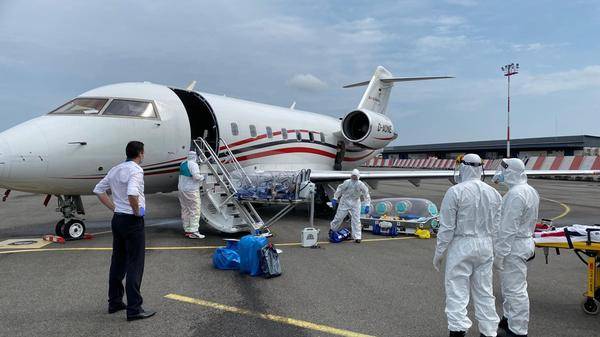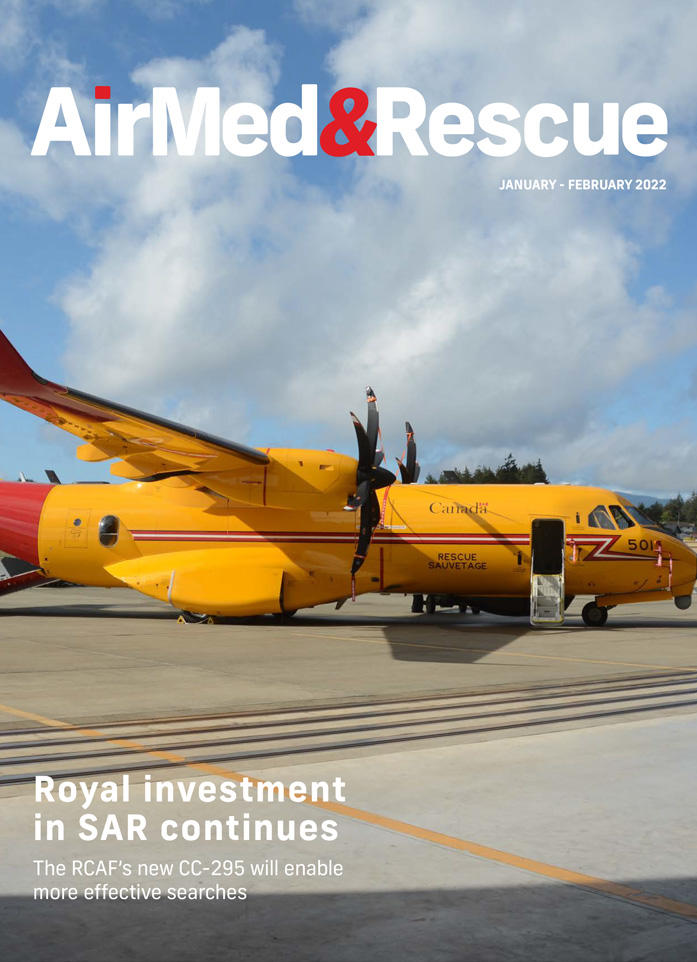Infectious disease patient transportation standards – call to action!

An internationally recognised standard for aeromedical Covid-19 transports could be on the horizon thanks to the creation of a new industry working group. Sebastian Reschenhofer spoke to AirMed&Rescue about the move
The coronavirus pandemic has changed our society and our economy on an unprecedented scale. Commercial aviation in particular was, and still is, severely affected by declining passenger numbers. At the same time, the pandemic has resulted in high demand for the air medical transport of seriously ill Covid-19 patients, both domestically and on international and especially intercontinental missions. It was an immense challenge for air ambulance providers to quickly adapt their capacities, procedures and equipment to the new requirements.
At ITIC Connected in 2020, which was attended by providers of air medical transportation, travel insurers and assistance companies, among others, several participants stated that an international Covid-19 transportation standard recognised by governmental organisations would help to create more trust and transparency for payers regarding the means of air transport and procedures used.
Formation of an industry working group
EUROCAE has taken the decision to launch a new Working Group – WG-123 Infectious passenger handling in air ambulance operations – in mid-February 2022. WG-123 is tasked to develop guidelines for aeromedical passenger handling and transport in respect to Covid-19 and other infectious diseases. The kick-off meeting of the WG will be held on 10 February 2022.
Companies and experts who have experience with such transports are welcome to participate in the development of this standard.
If your organisation is interested in joining WG-123, please contact Sebastian Reschenhofer ([email protected]). EUROCAE is a membership-based organisation and requires membership to participate in all activities.

About EUROCAE
The European Organisation for Civil Aviation Equipment (EUROCAE) is an international standardisation organisation, dedicated to the aeronautical industry. It was created as a non-for-profit organisation in 1963 and is currently located in Saint-Denis, France. To date, EUROCAE counts over 400 worldwide members, including stakeholders from all domains of aviation. EUROCAE documents (EDs) are being developed by one of the 50+ active Working Groups (WGs) composed of voluntary experts from the members. Before publication, documents will undergo a defined and recognised standards development process, including 45 days open commenting period, the so-called Open Consultation. The consensus-driven approach results in high-quality, robust standards, and ensures the main principles of EUROCAE: openness, transparency and consensus. EUROCAE documents enjoy worldwide recognition and support global aviation challenges.

January 2022
Issue
The latest medical equipment carried onboard HEMS and fixed-wing air ambulances that is making a difference to patient outcomes; sensor technology that is changing the SAR sector; medical transport billing; facing grief and trauma as a first responder; and drone swarms enhancing SAR provision.